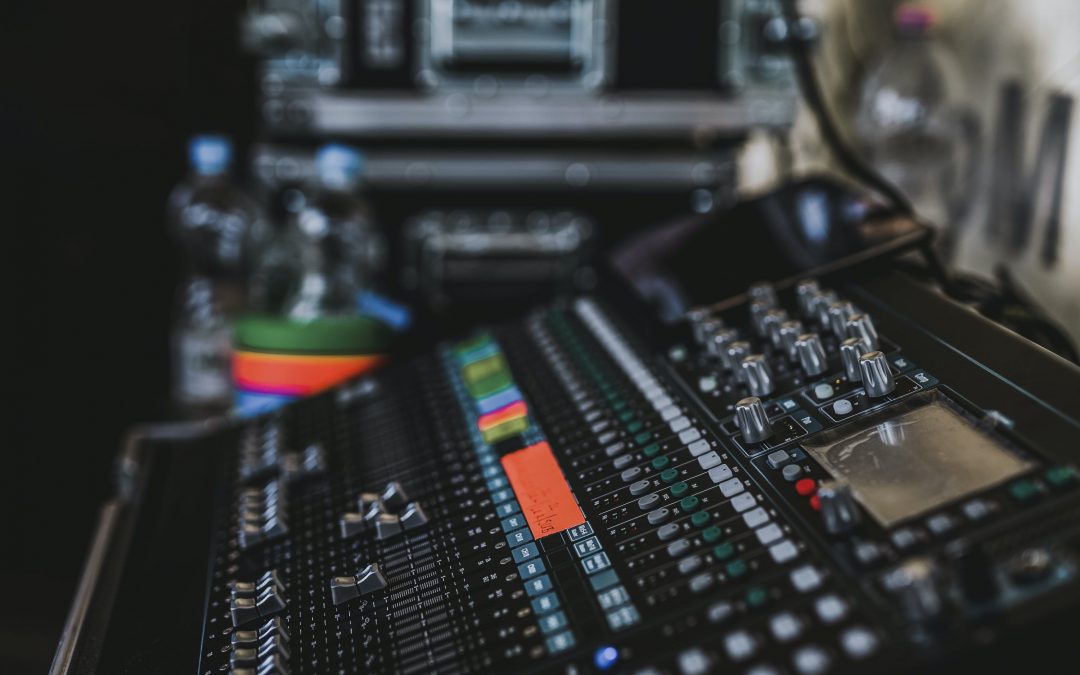The production management and technical crews are the unsung heroes behind the scenes who facilitate the seamless functioning of live performances at venues and festivals. This blog features a wealth of insights provided by Brian Goff, a distinguished stage manager with a lifetime of experience.
Whether you’re a solo artist, a duo, or a full band, effective communication with the back of house tech crew is vital for a successful show. This communication process begins well before you hit the stage and involves providing crucial information known as a Technical Rider.
Understanding the Technical Rider
A Technical Rider is a document that meticulously outlines all technical requirements essential for your performance. This information will usually be requested when the booking is confirmed and would usually be provided to the promoter of the event by you or your booking agent or manager.
The technical crew are relying on the information that is provided, so it’s imperative that all the key components of a comprehensive and professional technical rider are included as follows:
Current Information
It’s vital to keep this document current as providing outdated information can cause confusion and waste time on the day of the performance. Include exhaustive details about all your gear, instruments, amplifiers, keyboards, and percussion. Don’t overlook specifics, be it vocal mic preferences, playback track intricacies, or any unique elements that constitute your signature show.
Regular Updates
Life in the music industry is dynamic, and lineups can change at the drop of a hat. Make regular updates to reflect any alterations, even for a single show. Direct communication with those handling your bookings ensures swift relay of this critical information to the technical crew on the ground.
Detail is Key
There’s no cap on the amount of information you can provide. In fact, the more, the better. Eliminate any room for ambiguity by offering a surplus of details regarding your technical needs. In addition to backline requirements (if you’re not supplying your own), front of house and foldback sound preferences, power requirements and hospitality rider should all be included.
Accurate Stage Plot
It’s important to provide a clear and precise stage plot. The stage plot is a visual diagram that should paint a clear picture of each artist’s position relative to the front and centre of the stage.
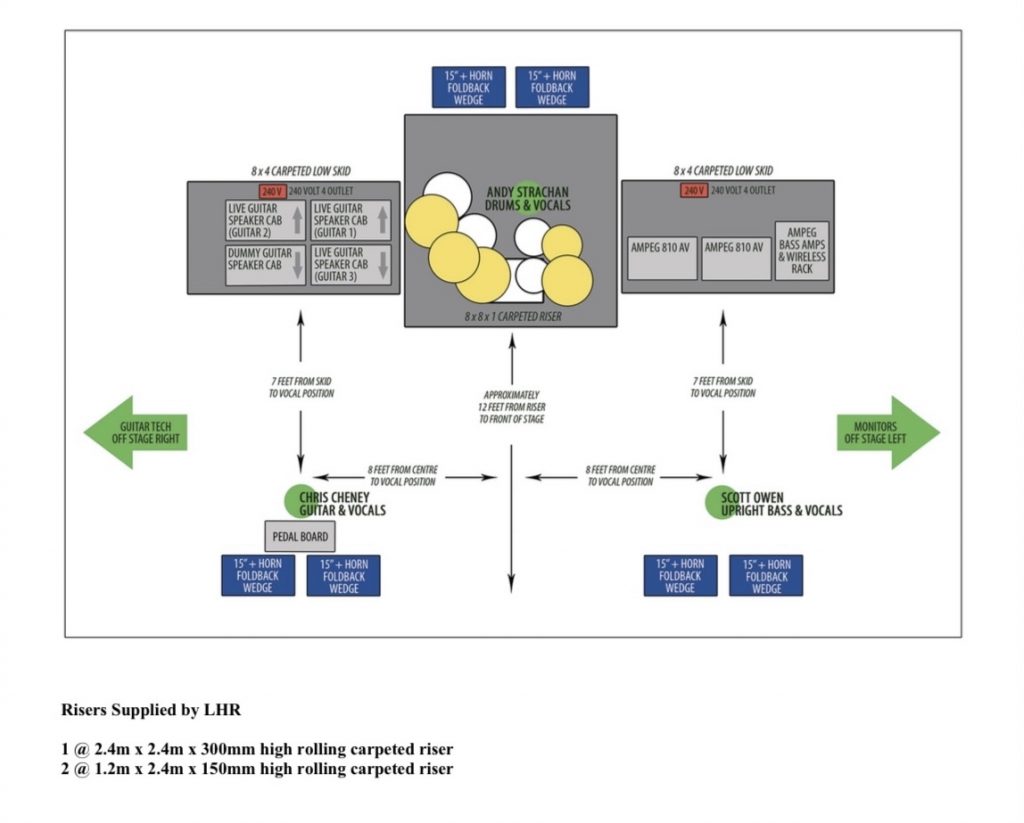
Contact Details
In the age of swift communication, having up-to-date contact information is non-negotiable. Ensure that both mobile and email details are readily available for the person best suited to discuss any technical intricacies. This ensures that any last minute issues or changes can be swiftly addressed.
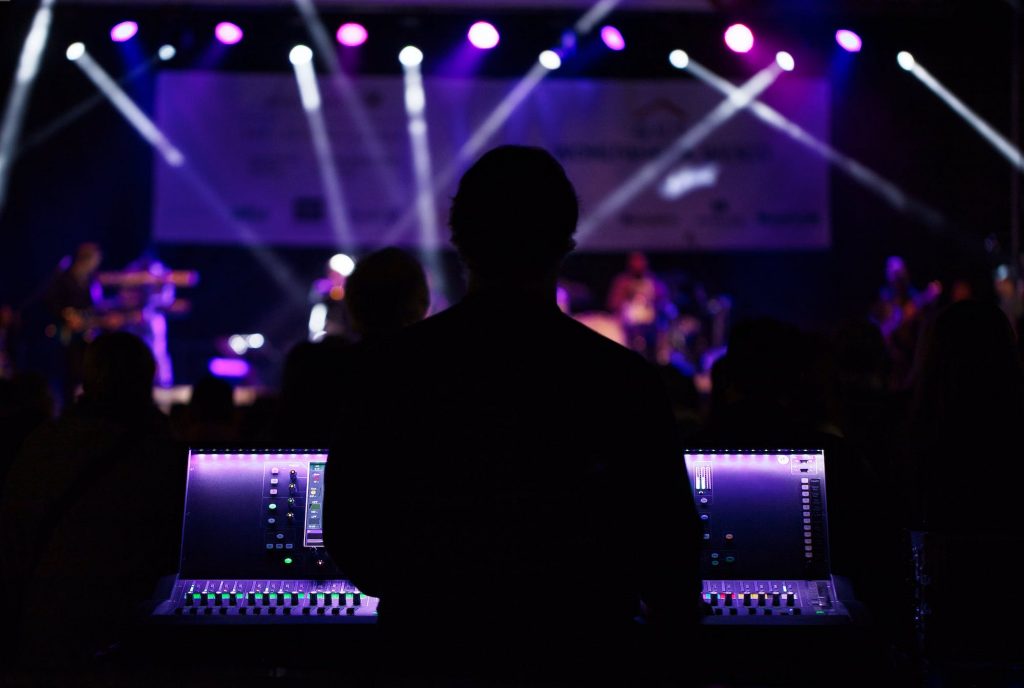
Ultimately, the content of the technical and hospitality rider will be subject to the negotiations made between each party and will be specific to each individual show. However, having an up-to-date document with all necessary information is essential, and can be adapted on a case by case basis.
Terminology Guide
As you delve into the world of technical discussions, having a firm grasp on commonly used terms is ideal for communicating effectively with the tech crew. Familiarise yourself with the following terms, so you have a firm understanding of the technical jargon.
FOH (Front of House)
The main audio that is projected out to the audience.
FOH OP/Sound Eng-Operator
The audio engineer responsible for mixing the front of house sound.
Monitors/Foldback Sends
Delivery of sound to the artists onstage. Sometimes the speakers will provide a blend of all instruments and at other times, players will have a monitor playing back their instrument only.
Monitor Engineer/Foldback Operator
The audio engineer responsible for mixing the sound that the artists are hearing on stage.
SM/Stage Manager
The person responsible for the efficient operation of the stage for all acts involved in the event.
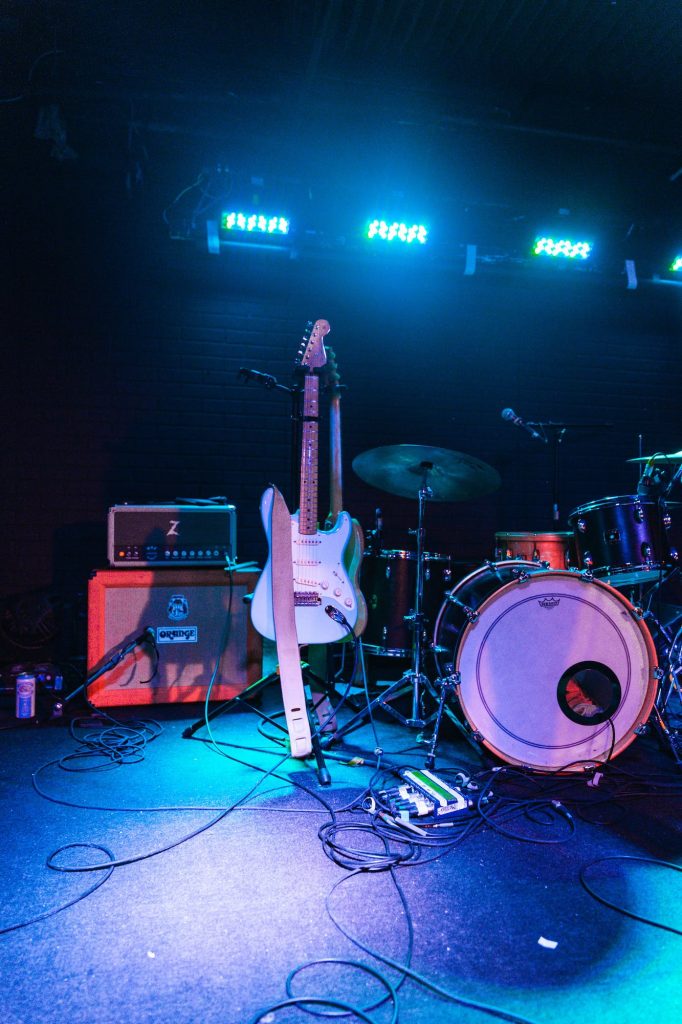
Depending on the scale of the show and the budget; the multiple roles described above can sometimes be performed by the same person. For instance, the Front of House operator could utilise a digital mixer to monitor the onstage monitors simultaneously for a smaller show. Once the event reaches a certain scale however, these areas become separate areas of responsibility.
Building a Collaborative Relationship:
Drawing from decades in the industry, Brian stresses the significance of collaboration. A harmonious relationship between musicians and tech crews, built on mutual respect and open communication, is the key to delivering unforgettable live performances.
Providing Clear Instructions:
One of the gems from Brian’s experience is the need for clear instructions. Whether it’s preferences during soundcheck or specific stage setups, articulating your requirements ensures that the tech crew can bring your vision to life seamlessly.
Handling Unexpected Challenges:
Brian shares his expertise on dealing with unforeseen challenges. From equipment malfunctions to sudden setlist changes, having a contingency plan and communicating effectively with the tech crew is crucial for overcoming challenges and delivering a flawless show.
In the realm of live music, success is a collaborative effort between artists and the technical crew. Brian Goff’s insights serve as a guide for musicians looking to enhance their interactions with tech crews at festivals and venues. As you embark on your live performances, remember the wisdom shared by this seasoned stage manager.
About the Guest Blogger:
Brian Goff is a renowned Australian stage manager with an impressive career spanning decades in the music industry. His expertise lies in ensuring seamless live performances by bridging the gap between musicians and technical crews.
Brian’s passion for the art of stage management has contributed to the success of numerous live shows in South-East Queensland and nationally, making him an invaluable resource for musicians seeking to elevate their performance experiences.
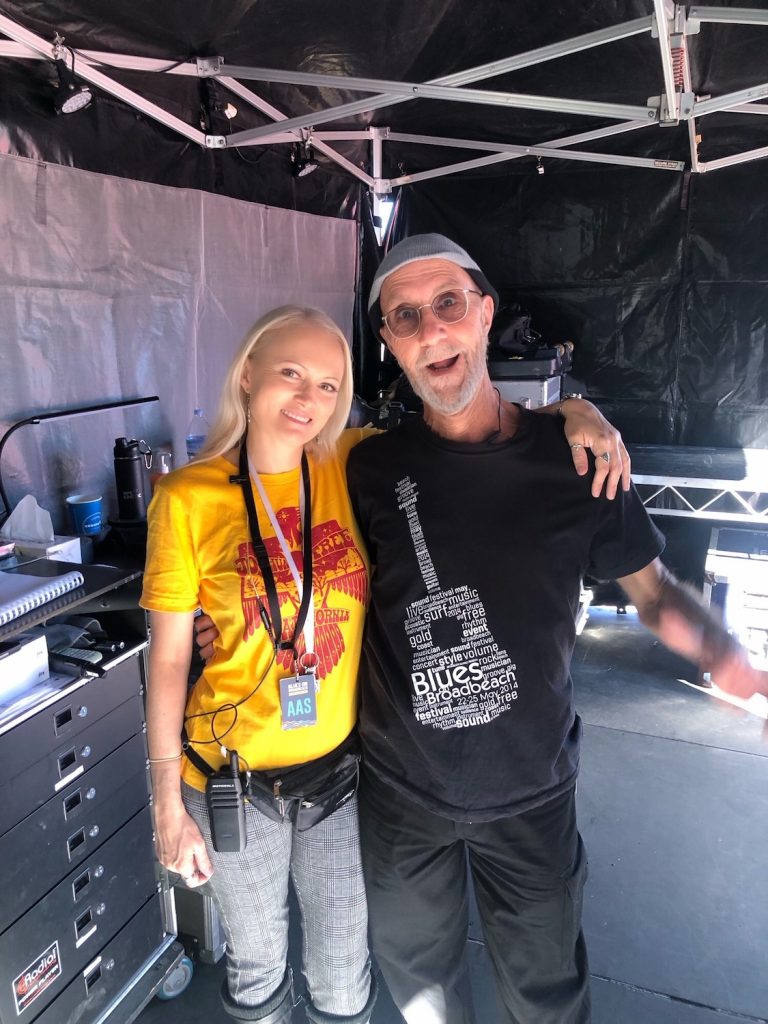
Brian Goff with Emily Holler at Blues on Broadbeach Festival 2023

